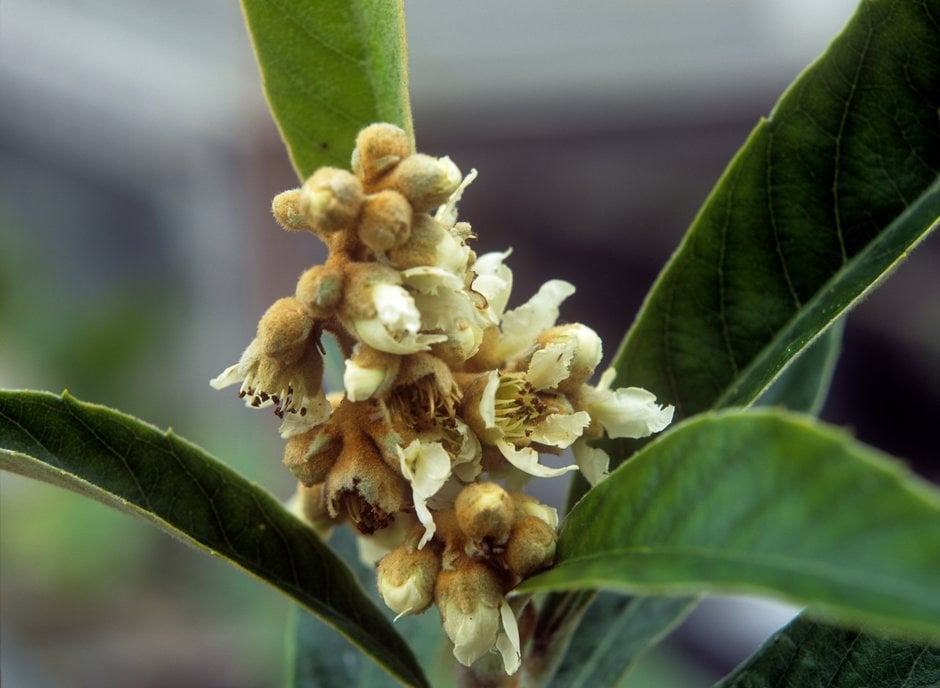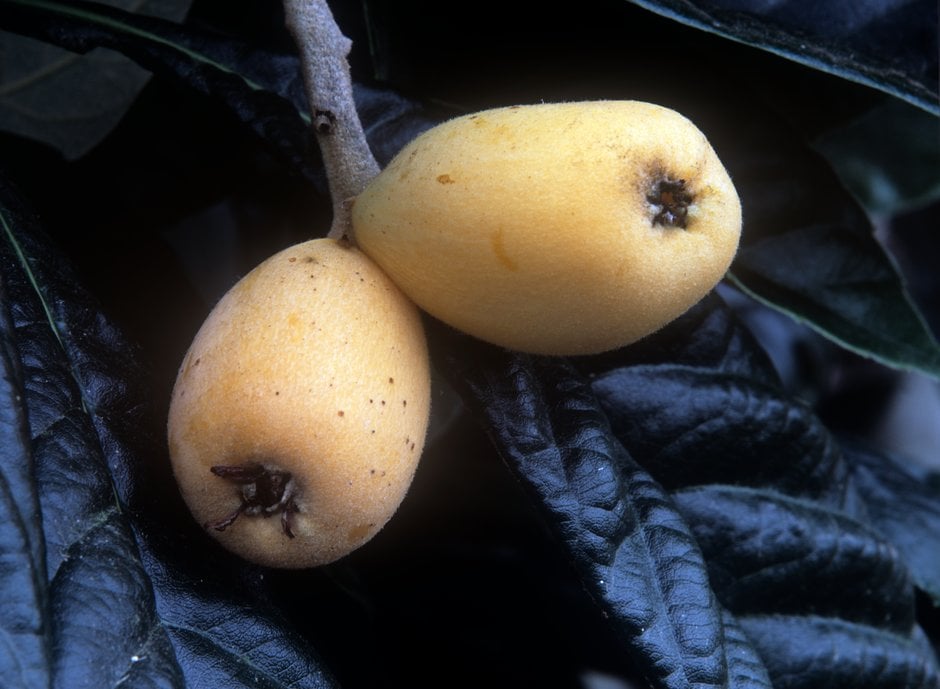Eriobotrya japonica (F)
Japanese loquat
A large evergreen shrub with handsome glossy leaves to 20cm in length, brown-felted beneath. Flowers 2cm in width, hawthorn-like, scented. Fruit 4cm, apricot-yellow, edible but seldom ripening in most of UK
Size
Ultimate height
4–8 metresTime to ultimate height
20–50 yearsUltimate spread
4–8 metresGrowing conditions
Moisture
Well–drainedpH
Acid, Alkaline, NeutralColour & scent
| Stem | Flower | Foliage | Fruit | |
| Spring | Green | Orange Yellow | ||
|---|---|---|---|---|
| Summer | Green | |||
| Autumn | White | Green | ||
| Winter | White | Green |
Position
- Full sun
Aspect
South–facing or East–facing
Exposure
Sheltered Hardiness
H4Botanical details
- Family
- Rosaceae
- Native to GB / Ireland
- No
- Foliage
- Evergreen
- Habit
- Bushy
- Potentially harmful
- Seeds contain toxins so these should be removed if you are considering eating the fruit, usually grown as an ornamental shrub. Pets: Fruit are ornamental - not to be eaten - see the HTA guide to potentially harmful plants for further information and useful contact numbers
- Genus
Eriobotrya are spreading evergreen shrubs or trees with simple, leathery leaves and small white flowers in panicles, followed by succulent fruits
- Name status
Correct
- Plant range
- China
How to grow
Cultivation
Under glass grow in peat-free, loam-based potting compost in full or bright filtered light with good ventilation. Water moderately and apply a balanced liquid fertiliser monthly when in growth and keep just moist in winter. Can be grown outdoors in most fertile soils
Propagation
Propagate by seed at 13 to 16°C in spring or take semi-hardwood cuttings in summer
Suggested planting locations and garden types
- Architectural
- Coastal
- City and courtyard gardens
- Low Maintenance
- Wall side borders
Pruning
Pruning group 1, may need restrictive pruning under glass
Pests
May be susceptible to mealybugs under glass
Diseases
May be susceptible to honey fungus (rarely)
Get involved
The Royal Horticultural Society is the UK’s leading gardening charity. We aim to enrich everyone’s life through plants, and make the UK a greener and more beautiful place.

